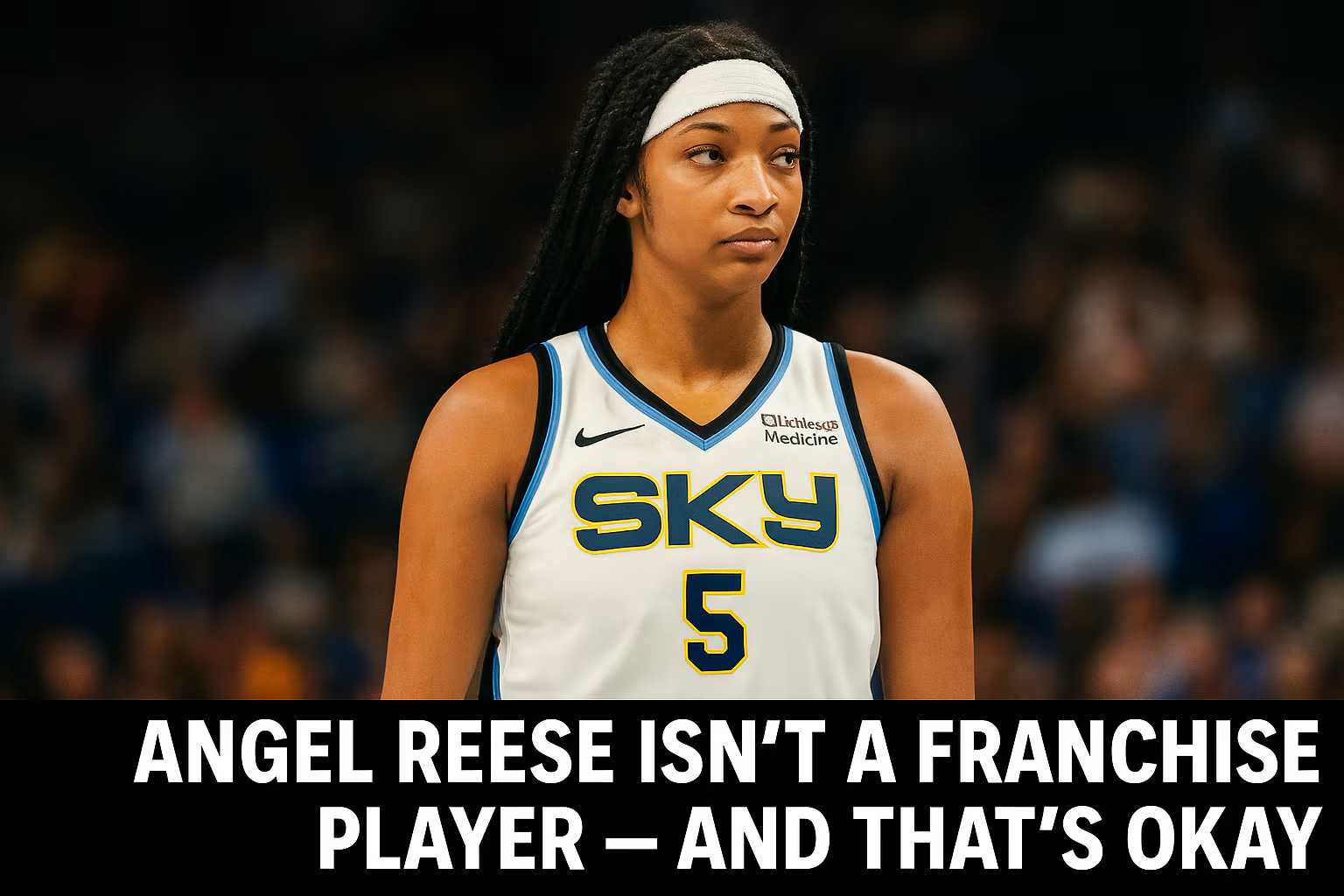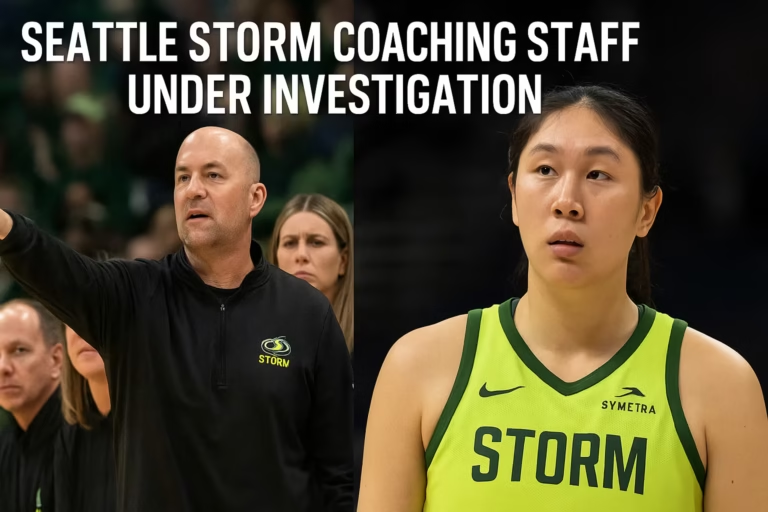Not Every Star Is Built for a Team’s Foundation
Angel Reese is one of the most talked-about young players in the WNBA. Between her viral moments, flashy rebounding numbers, and confident personality, she’s become a major name in women’s sports. There’s no denying her charisma or competitive drive. But when you strip away the headlines and hype, the basketball truth is clear: Angel Reese is a valuable role player. She is not a franchise cornerstone.
That’s not meant as disrespect. It’s just reality.
When teams talk about building around a player, they’re usually referring to someone who can consistently create offense, make others better, and be the go-to option in crunch time. Angel Reese doesn’t fit that mold. At least not right now.
She’s an elite rebounder and arguably one of the best in the league already in that category. She brings energy, toughness, and extra possessions. But when it comes to scoring versatility, floor spacing, or running the offense through her, she comes up short.
You can win games with Angel Reese on your roster. But if she’s one of your top two offensive options? You’re going to run into problems.
Her Skill Set Is Still Extremely Limited
Let’s be honest: Reese’s actual basketball skills aren’t very polished yet.
Her footwork in the post is raw. She struggles finishing over length. She doesn’t have a go-to move in isolation. Her shot mechanics are inconsistent, and her range basically stops at the free throw line. And when it comes to ball handling… well, just watch the clip below.
It’s not just an isolated moment. Watch full games. She’s uncomfortable when pressured, doesn’t handle double-teams well, and often turns the ball over in traffic. Her assist-to-turnover ratio backs it up.
Strip away the transition buckets and offensive rebounds, and Reese doesn’t generate much on her own. That’s fine if you’re a role player. But franchise players don’t rely on hustle stats to stay relevant in half-court sets.
The Caitlin Clark Comparisons Are Silly and Unfair
A lot of people want Angel Reese vs. Caitlin Clark to be the next great rivalry and keep trying to make it a thing. While it makes for interesting content on social media, it doesn’t make much basketball sense.
Clark is already showing signs of being a true offensive engine. She can shoot from deep, break down defenders off the dribble, and set up teammates with elite court vision. Even when she’s off, defenses have to scheme around her.
Reese? She’s not that type of player, and it’s unfair to treat her like she should be.
They can both shine on the court in different ways. But one of them has the offensive ceiling to carry a team. The other brings value in a supporting role. That’s not an insult. It’s just a better framing of reality than the constant comparisons.
The Best Path Forward
The ideal version of Angel Reese plays next to a guard who can break down a defense. Surround her with shooters. Let her own the glass, run the floor, and bring grit every night. In that setup, she’s a difference-maker.
But if you’re asking her to carry a team’s offense, create her own shot, and be a consistent go-to option, you’re asking too much.
Reese isn’t the problem. The expectations are.
Final Thoughts
Angel Reese can have a long, impactful WNBA career. She’ll win games, make All-Star teams, and earn the respect of coaches and teammates around the league. But she’s not the player you build your franchise around and there’s absolutely nothing wrong with that.
Teams win championships with tough, smart, high-motor players like Reese. Just don’t expect her to be the centerpiece. That’s not who she is and pretending otherwise only does her a disservice.



